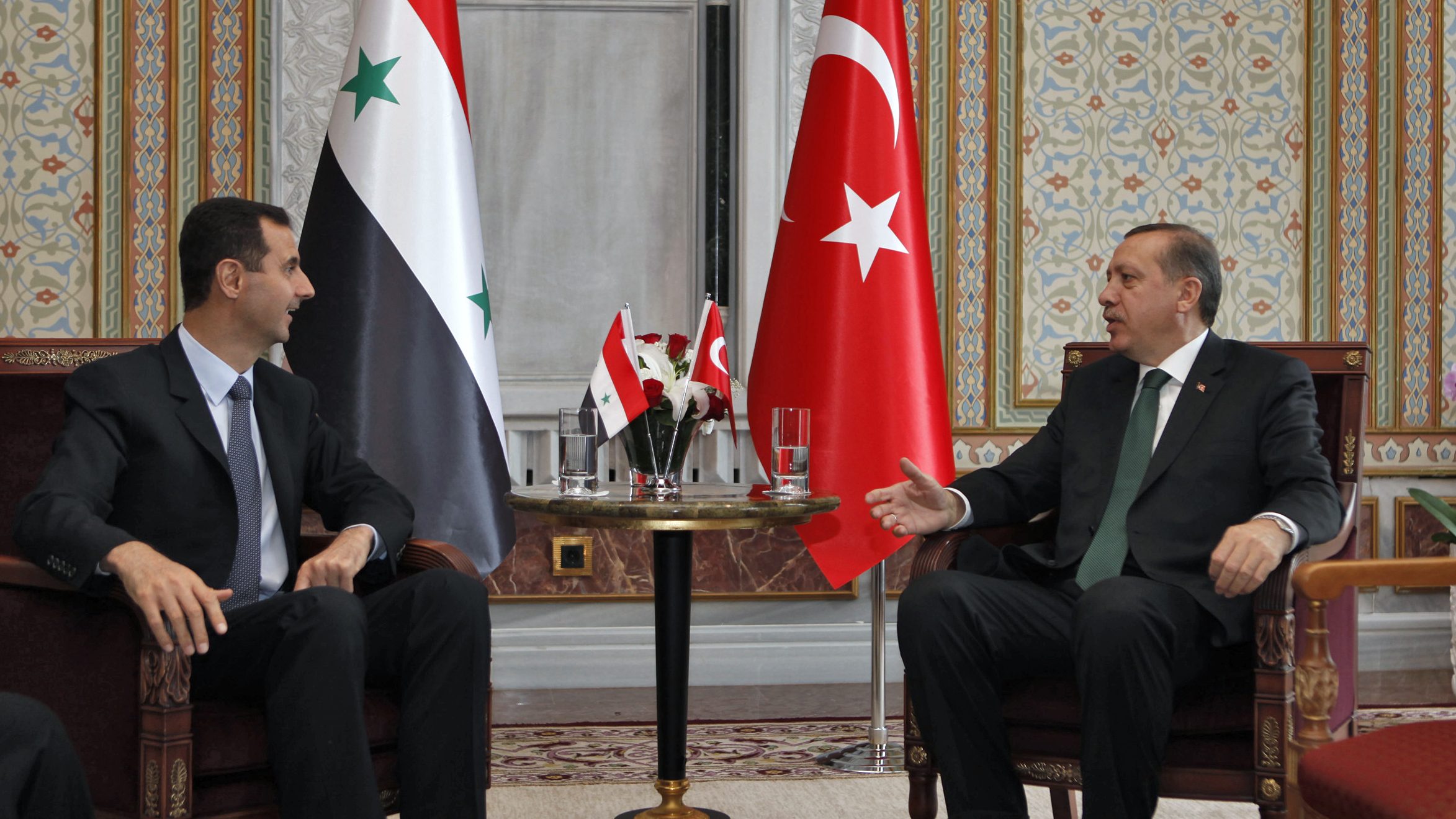The impression emerges that Syrian regime head Assad still makes his own decisions from the recurring reports about this refusal to normalize his regime’s relationship with Turkey, his refusal to meet with Turkish President Recep Tayyip Erdogan, and Assad’s request to postpone the meeting. This inference that Assad is not controlled by Russia or Iran leads sources to question such stories published by the Reuters news agency, which themselves are based on quotations from unidentified sources.
Before Reuters, the Associated Press had claimed – citing a Lebanese official – that Assad had rejected a request from Erdogan through Iran to send a Turkish delegation to Damascus. “Assad rejected the Turkish request but expressed his openness to holding talks in a third country,” the source said.
It seems that this news has finally prompted Ankara to respond through the spokesman for the Turkish presidency, Ibrahim Kalin, who said on Sunday that the Turkish president hinted at things before the meeting with Bashar al-Assad. This indicated that Erdogan demanded that, before he would meet with Assad, le latter should act responsibly and dispel Turkey’s security concerns while also allowing the political track in Syria to continue and make progress. Erdogan also demanded that Assad protect the Syrian people, and ensure regional peace and stability, security and order along the Turkish-Syrian border.
Russian propaganda
For his part, Syrian opposition member Firas Tlass questioned the news about Assad’s reluctance to meet Erdogan. “Everything that has been circulated in this regard has nothing to do with the truth,” he said to Orient Net. “It is fabricated by Russia, which wants to jumble up everyone’s cards.”
In the same vein, political opponent Samir Nashar, speaking to Orient Net, suggested that Russia is behind the proposition that Assad refused to meet with Erdogan. “The Russian goal of broadcasting this media propaganda is to improve Assad’s image and to say that he is still an independent decision-maker,” Nashar said.
Nashar added that the subject of the meeting between Erdogan and Assad seems settled because the Turkish turn towards Assad came after a gradual path during which deals were made between Putin and Erdogan. These deals resulted in the operations entitled Euphrates Shield, Olive Branch and Peace Spring and the corresponding loss of large liberated areas – which, at the time, were called de-escalation zones. “Logically, I cannot see that Assad imposes conditions or makes objections,” he said.
According to Nashar, the current narrative aims to control Syrians from the revolutionary and opposition forces, and both contain and absorb their reactions, especially those residing in northern Syria and Turkey. This tactic follows what happened previously after the first statement by Turkish Foreign Minister Mevlut Cavusoglu about the need for reconciliation with the regime.
What calls for attention is the absence of political positions not only for official opposition institutions but also for opposition figures from outside the official frameworks and from outside Turkey as well. “I believe that a process of domestication is underway for Syrians to accept the Turkish transformation and also to reconsider the position of Bashar al-Assad,” he said.
Indeed, there has been no official comment from the coalition on the torrent of Turkish calls for political dialogue between the regime and the opposition.
Calculations related to the Turkish military presence
Bassam al-Bunni, a political analyst who specializes in Russian affairs, confirmed that “Damascus is not opposed to normalization with Turkey, in terms of the periodic security talks that are taking place. But it is natural that Assad refuses to meet with Erdogan, given the presence of Turkish forces on Syrian soil.”
Speaking to Orient Net from Moscow, Bunni said that Assad’s meeting with Erdogan – without first resolving the issue of the Turkish presence in northern Syria – means “legitimization” of this presence by the political leadership.
In addition to these calculations, Bunni pointed to the Syrian regime’s desire to frustrate Erdogan’s calculations in relation to the presidential and parliamentary elections scheduled for June 2023. “It is not known where those elections will lead, and it is possible that the picture will change if Erdogan wins,” he said.
Therefore, Orient Net’s sources rule out the prospect of any progress being made toward normalization between Turkey and the Syrian regime before the Turkish presidential and parliamentary elections.
This article was translated and edited by The Syrian Observer. The Syrian Observer has not verified the content of this story. Responsibility for the information and views set out in this article lies entirely with the author.


